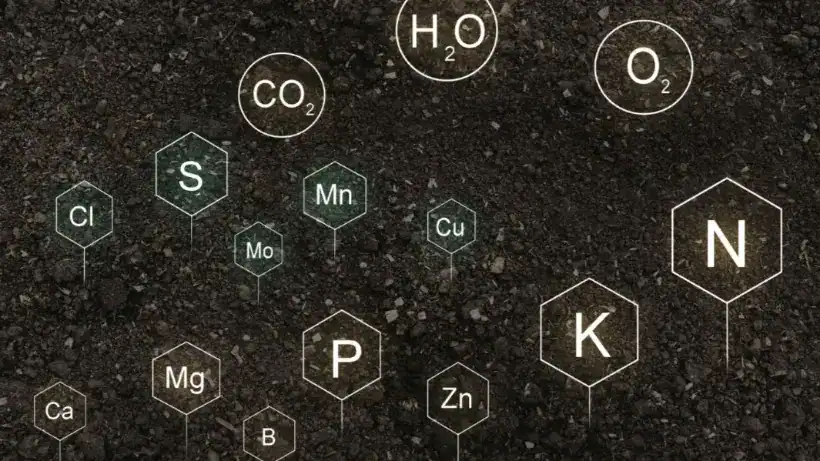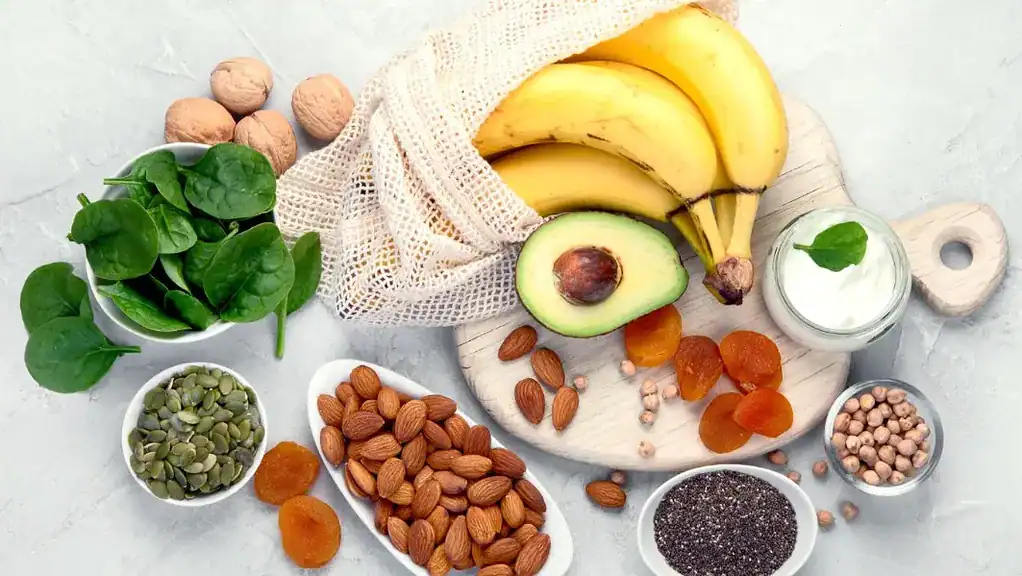In today’s fast-paced world, knowing the role of nutrients is key for optimal health. This guide covers essential nutrients, their functions, and how to ensure you get enough in your diet.
Key Takeaways:
- Eat rainbow: fruits & veggies for vitamins & minerals.
- Choose complex carbs, lean protein, healthy fats & stay hydrated.
- Needs vary by age, sex, activity.
- Consult a doctor or dietitian for personalized advice.
What Defines a Nutrient?

Nutrients are substances that provide nourishment to our bodies. They enable growth, energy production, and overall health. We obtain nutrients primarily through the food we eat. Supplements can also play a role in meeting our nutritional needs.
“Proper nutrition is not just about eating; it’s about nourishing your body with the right balance of nutrients to thrive.” – Dr. Sarah Johnson, Registered Dietitian
The Major Nutrient Groups
1. Carbohydrates: Your Body’s Primary Energy Source
Carbohydrates, often shortened to “carbs,” are crucial for:
- Providing immediate energy for daily activities
- Fueling high-intensity exercise
- Supporting digestive health
- Regulating blood sugar levels
Recommended Daily Intake: 45-65% of total calories
Food Sources: Whole grains, fruits, vegetables, legumes
Pro Tip: Choose complex carbohydrates over simple sugars for sustained energy and better health outcomes.
2. Proteins: The Building Blocks of Life
Proteins are essential for:
- Building and repairing tissues
- Producing enzymes and hormones
- Supporting immune function
- Maintaining fluid balance
Recommended Daily Intake: 10-35% of total calories (or 0.8g per kg of body weight for adults)
Food Sources: Lean meats, fish, eggs, dairy, legumes, nuts, and seeds
Did You Know? The human body contains over 10,000 different proteins, each with a specific function!
3. Fats: Not the Enemy You Think
Healthy fats are crucial for:
- Absorbing fat-soluble vitamins (A, D, E, K)
- Providing insulation and protecting organs
- Supporting brain function
- Hormone production
Recommended Daily Intake: 20-35% of total calories
Food Sources: Avocados, nuts, seeds, olive oil, fatty fish
Health Tip: Focus on unsaturated fats while limiting saturated and trans fats for heart health.
4. Vitamins and Minerals: The Micronutrient Powerhouses
Vitamins
Vitamins are organic compounds essential for various bodily functions:
| Vitamin | Key Functions | Food Sources |
|---|---|---|
| Vitamin A | Vision, immune function | Carrots, sweet potatoes, spinach |
| Vitamin C | Antioxidant, collagen production | Citrus fruits, berries, bell peppers |
| Vitamin D | Bone health, immune function | Fatty fish, egg yolks, fortified foods |
| Vitamin E | Antioxidant, skin health | Nuts, seeds, vegetable oils |
Minerals
Minerals are inorganic elements crucial for various bodily processes:
| Mineral | Key Functions | Food Sources |
|---|---|---|
| Calcium | Bone health, muscle function | Dairy products, leafy greens, fortified foods |
| Iron | Oxygen transport, energy production | Red meat, beans, fortified cereals |
| Magnesium | Energy production, muscle and nerve function | Nuts, seeds, whole grains |
| Zinc | Immune function, wound healing | Oysters, beef, pumpkin seeds |
5. Water: The Often Overlooked Nutrient
Water is crucial for:
- Regulating body temperature
- Transporting nutrients and oxygen
- Removing waste products
- Cushioning joints
Recommended Daily Intake: About 3.7 liters for men and 2.7 liters for women, including water from foodsPro Tip: Your water needs may increase with exercise, hot weather, or during illness.
Nutrient Needs Across Life Stages

Nutritional requirements vary based on age, gender, and activity level:
- Children and Adolescents: Higher needs for calcium and protein to support growth
- Adults: Balanced intake of all nutrients, with increased focus on heart-healthy choices
- Pregnant Women: Increased needs for folic acid, iron, and calcium
- Older Adults: Higher requirements for vitamin D and B12
Common Nutrient Deficiencies and Solutions
- Iron Deficiency:
- Symptoms: Fatigue, weakness, pale skin
- Solution: Consume iron-rich foods, pair with vitamin C for better absorption
- Vitamin D Deficiency:
- Symptoms: Bone pain, muscle weakness
- Solution: Safe sun exposure, fatty fish, fortified foods, supplements if necessary
- Vitamin B12 Deficiency:
- Symptoms: Anemia, fatigue, neurological changes
- Solution: Animal products, fortified foods, supplements (especially for vegetarians/vegans)
Practical Tips for Optimal Nutrition
- Eat a rainbow of fruits and vegetables daily
- Choose whole grains over refined grains
- Include lean proteins in every meal
- Stay hydrated throughout the day
- Limit processed foods and added sugars
- Consider a multivitamin if you struggle to meet nutrient needs through diet alone
Conclusion
Understanding and prioritizing proper nutrition is key to maintaining good health and preventing chronic diseases. By focusing on a balanced intake of carbohydrates, proteins, fats, vitamins, minerals, and water, you can fuel your body for optimal performance and well-being.
Remember, while this guide provides general recommendations, individual nutrient needs may vary. Consult with a registered dietitian or healthcare provider for personalized nutrition advice.
For more information on essential vitamins your body needs, check out our comprehensive guide. If you’re looking to boost your metabolism naturally, explore our article on 10 ways to boost your metabolism and burn body fat.
Learn more about the role of nutrition in your health and fitness journey by exploring our extensive collection of articles and resources.

Dianne Pajo is a Certified Personal Trainer based out of the Chicagoland area with a passion for music, combat sports, and animals. She enjoys competing in amateur boxing and kickboxing, but in her other leisure time, you can find her performing music around the city. She is also a dog mom of 2.
